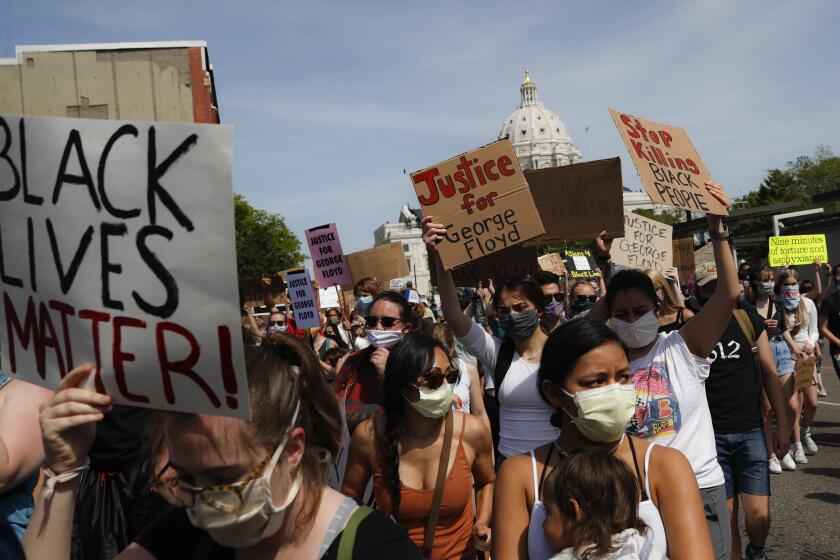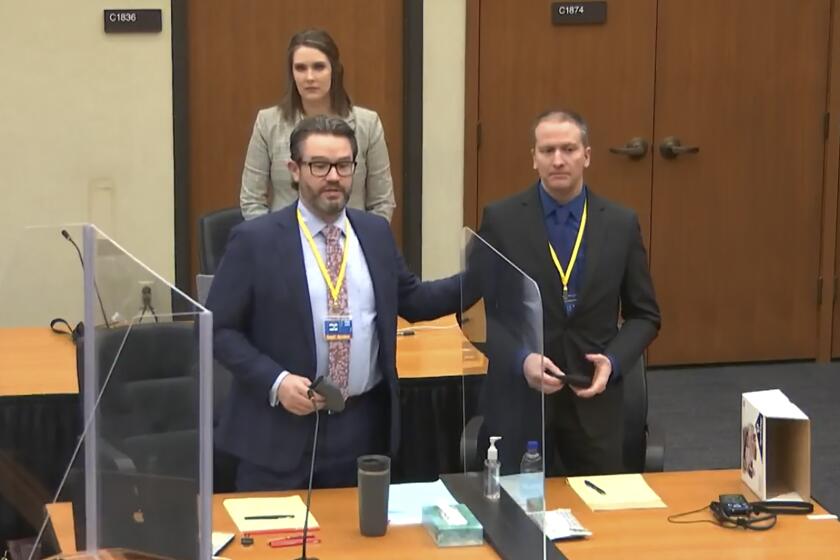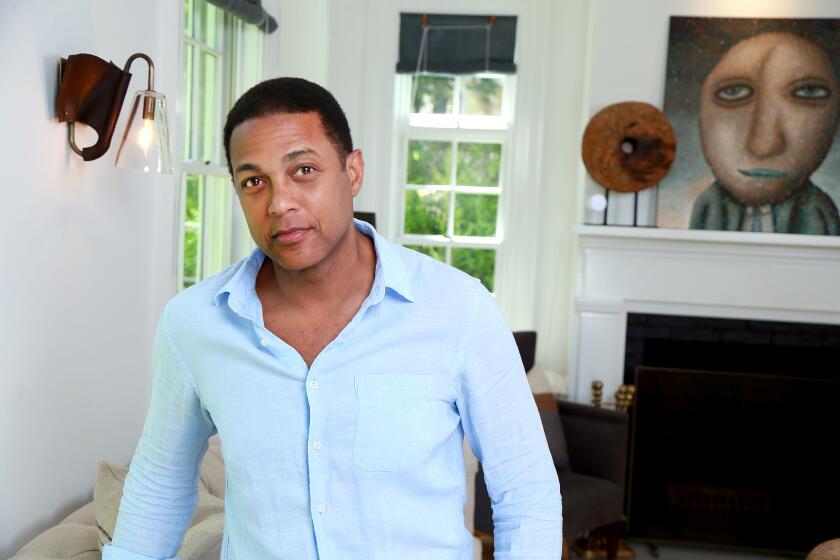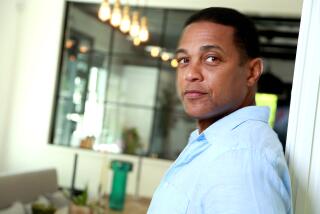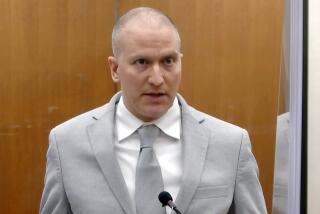CNN’s Don Lemon mourns George Floyd for 9 minutes, 29 seconds: ‘That’s a long time’
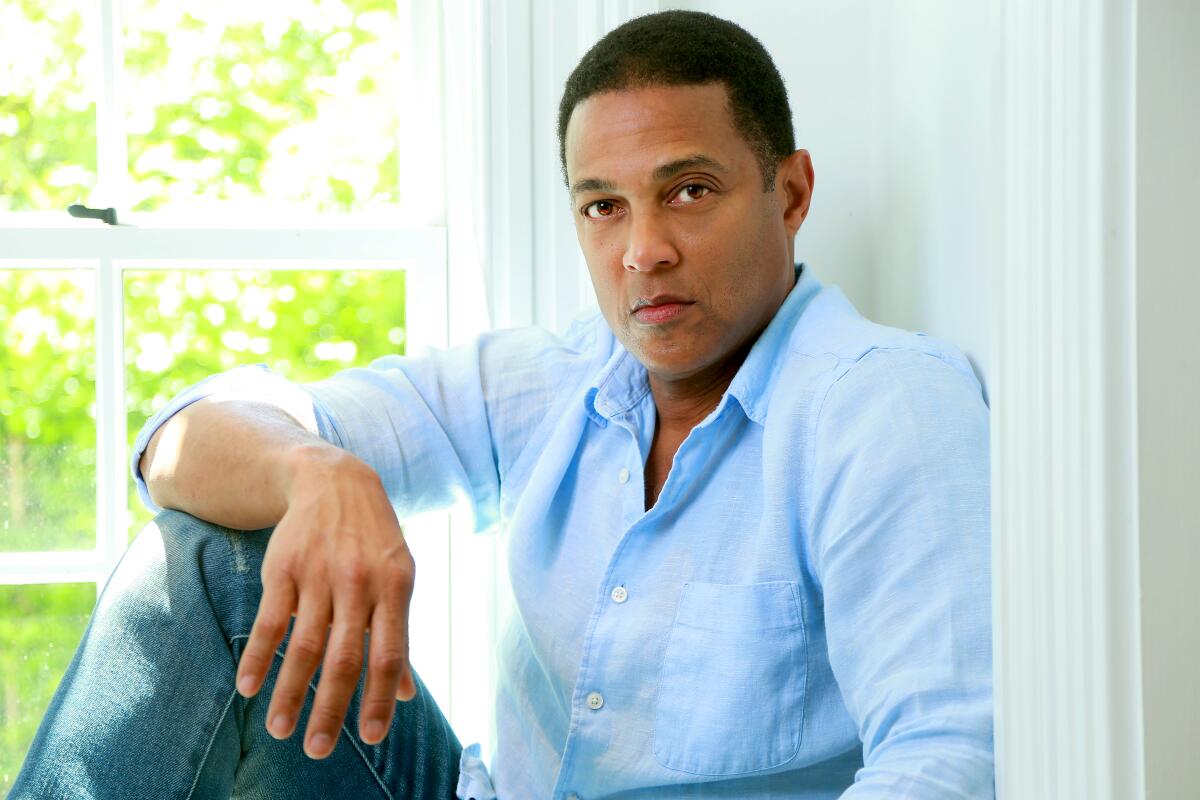
- Share via
While speaking on the killing of George Floyd and the trial of former Minneapolis police officer Derek Chauvin, who has been charged with murder and manslaughter, CNN anchor Don Lemon kept time for nine minutes and 29 seconds.
“Eight minutes and 46 seconds ... that’s a long time,” Lemon said Monday on “CNN Tonight.” “You’ve heard that’s how long white police officer ... Derek Chauvin kneeled on the neck of a Black man, George Floyd, as he begged for his life. ...
“[W]e learned today that it was much longer than that. He stayed on George Floyd’s neck for nine minutes and 29 seconds. So I just want to put something up on the screen for you as I’m doing this ... I’m going to run a clock on the screen for nine minutes and 29 seconds. It’s an excruciatingly long time — much longer than you think. And it goes on and on and on.”
On trial in George Floyd’s death, fired Minneapolis officer Derek Chauvin almost certainly won’t be able to argue he made a split-second decision in a life-or-death situation, as police officers facing charges often do.
Chauvin is on trial this week for the killing of Floyd, which sparked worldwide protests last year condemning systemic racism and police brutality. During the first day of the trial, prosecutors presented the infamous video of Chauvin pinning Floyd to the ground as he gasped for air, repeatedly told police he could not breathe and eventually stopped moving.
“I’m going to go on with the show, and I just want you to think about the time, if someone’s knee is on your neck and they’re stopping you from breathing,” Lemon continued. “But even that horrific number doesn’t begin to tell you what happened to George Floyd, doesn’t begin to tell you how he struggled to get air in his lungs. ...
“How he cried out in pain, begged for his mother. How the crowd pleaded with police to stop ... while Derek Chauvin just kept his knee on his neck. Nine minutes and 29 seconds. All of this happening on a Minneapolis street in broad daylight. And it was caught on camera. ... This is one minute now.”
This is Day 1 in the trial of former Minneapolis Police Officer Derek Chauvin, accused in the death of George Floyd last summer.
Shortly after Floyd’s death, Chauvin and his fellow officers involved were fired from the Minneapolis police force. He now stands trial for unintentional second-degree murder, third-degree murder and manslaughter. If convicted of second-degree murder, he could spend up to 40 years in prison.
Monday’s trial also featured audio from a phone call between a duty sergeant and a police dispatcher, who testified that she watched live surveillance footage of Floyd’s violent arrest in real-time and immediately reported the incident to the sergeant because “my instincts were telling me that something is wrong.”
The Chauvin trial will continue this week, while the other three ex-officers involved in Floyd’s arrest and killing will be tried in August. Toward the end of Monday’s “CNN Tonight” segment on the proceedings, Lemon described his response to the video evidence of Chauvin pressing his knee into Floyd’s neck.
The Louisiana native, who joined CNN in 2006 and is the only Black cable news anchor in prime time, is clearly energized by having a role in shaping the current national discourse on race relations.
“I saw it today for the first time in months since last summer, and every time is like the first time,” Lemon said as the onscreen clock was ticking. “All I kept saying was, ‘OK, enough.’ ... Even though you know what happens in the end, as you’re watching that video, I think we all have the same reaction: ‘OK, OK, OK, OK. ... You can take it off his neck now. Let the man breathe.’
“It is so hard to watch that video, but we just can’t look away from it. That is not justice. That’s not deescalation. That’s not what police officers are supposed to do.”
More to Read
The complete guide to home viewing
Get Screen Gab for everything about the TV shows and streaming movies everyone’s talking about.
You may occasionally receive promotional content from the Los Angeles Times.
